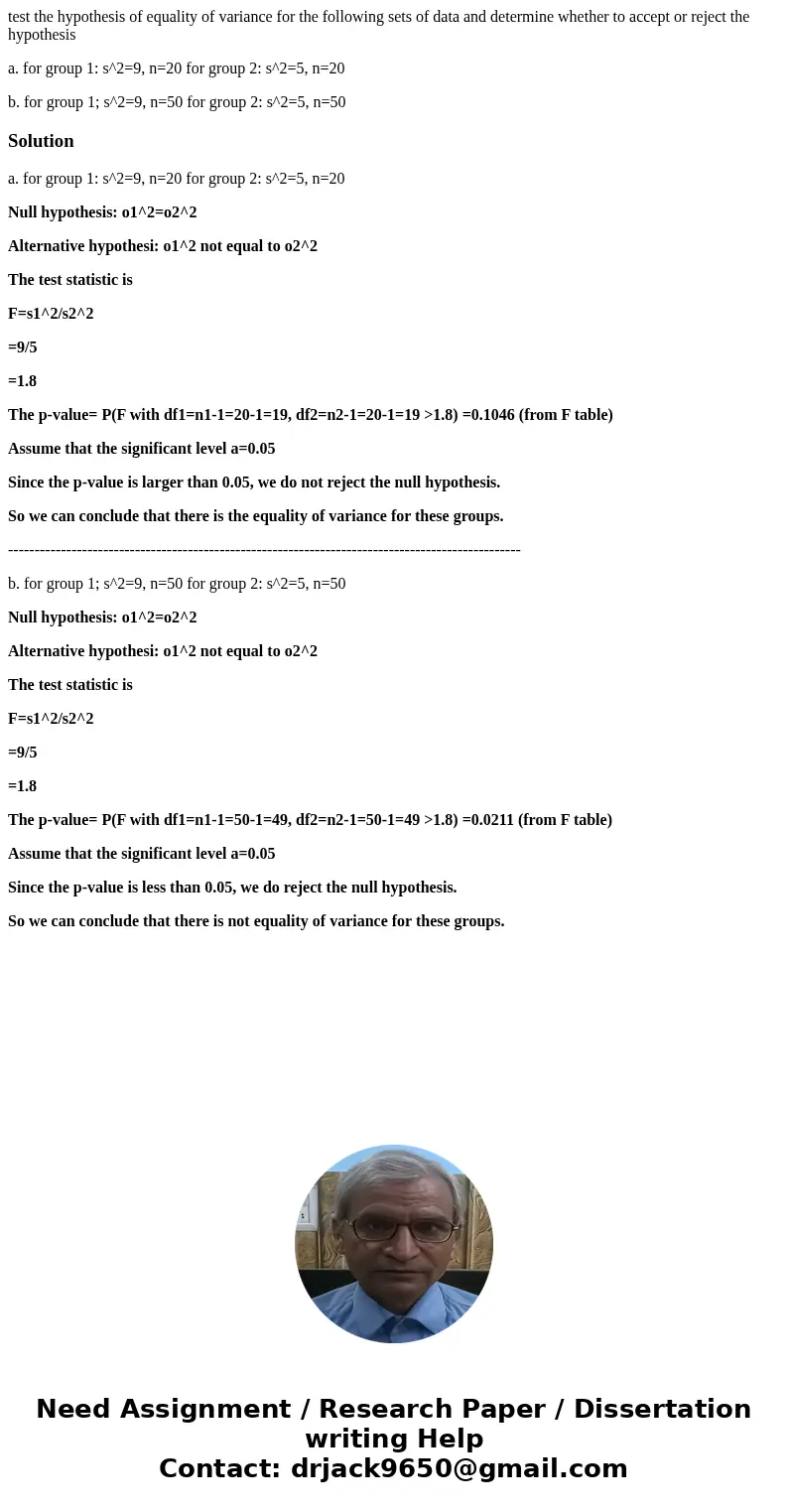test the hypothesis of equality of variance for the followin
test the hypothesis of equality of variance for the following sets of data and determine whether to accept or reject the hypothesis
a. for group 1: s^2=9, n=20 for group 2: s^2=5, n=20
b. for group 1; s^2=9, n=50 for group 2: s^2=5, n=50
Solution
a. for group 1: s^2=9, n=20 for group 2: s^2=5, n=20
Null hypothesis: o1^2=o2^2
Alternative hypothesi: o1^2 not equal to o2^2
The test statistic is
F=s1^2/s2^2
=9/5
=1.8
The p-value= P(F with df1=n1-1=20-1=19, df2=n2-1=20-1=19 >1.8) =0.1046 (from F table)
Assume that the significant level a=0.05
Since the p-value is larger than 0.05, we do not reject the null hypothesis.
So we can conclude that there is the equality of variance for these groups.
-------------------------------------------------------------------------------------------------
b. for group 1; s^2=9, n=50 for group 2: s^2=5, n=50
Null hypothesis: o1^2=o2^2
Alternative hypothesi: o1^2 not equal to o2^2
The test statistic is
F=s1^2/s2^2
=9/5
=1.8
The p-value= P(F with df1=n1-1=50-1=49, df2=n2-1=50-1=49 >1.8) =0.0211 (from F table)
Assume that the significant level a=0.05
Since the p-value is less than 0.05, we do reject the null hypothesis.
So we can conclude that there is not equality of variance for these groups.

 Homework Sourse
Homework Sourse